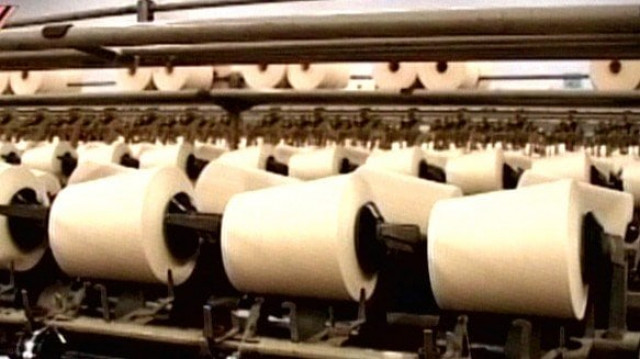Pakistani cotton yarn exports to China surge
Guangdong province imports locally produced low-count sirospun yarns

Pakistan exported $54.613 million worth of cotton yarn in August, registering a year-on-year decline of 51.36%, according to the Pakistan Bureau of Statistics. However, its cotton yarn export to China surged in the same month. Data from China’s General Administration of Customs shows that Beijing imported $41.836 million worth of cotton yarn (commodity code number 5205) from Pakistan in August, which is 4.36 times more than $9.592 million imported in August 2019, with a year-on-year increase of 336%.
To find out the fact behind the substantial growth of Pakistan’s cotton yarn export to China, CEN reporters attended the 2020 Autumn Joint Exhibition of China National Textile and Apparel Council. Low-count sirospun yarn “Pakistan mainly produces low-count sirospun yarns, such as those of 8s or 10s, generally below 21s, which are mostly imported to south China’s Guangdong province to be made into denim,” said Huang Xifeng, sales executive of import and export department at Litai Xingshi Holding.
“We imported about 1,000 tons of cotton yarn from Pakistan every year,” Yang Bin, director of Seazon Textile and Apparel in Foshan, China said in an interview with the China Economic Net. “Our denim fabric is made of thick and low-count yarns which are basically 10s or 8s, no more than 12s.” The fabric woven with higher-count yarns is thinner and softer. Yang added that he has cooperated with Pakistan’s cotton yarn manufacturers for nearly 10 years.
“As for Pakistan’s cotton yarn, we only imported it from explorer, a Pakistani manufacturer, with which we have cooperated for more than 10 years,” he said. “Produced locally in Pakistan with American and Australian cotton as raw materials, it boasts the best quality of all.” And yet, most of the other Pakistani producers adopt locally grown cotton, which may save hundreds of yuan per ton.
Although Pakistani cotton is somewhat of inferior quality to that in America, Australia, and China, it can be turned into denim, Yang said. Pakistani cotton yarn cheaper than China “The main reason for the surge in import lies in the fact that Pakistan’s yarn export to China enjoys zero tariff, thus having a greater competitive advantage internationally,” said Xiamen Naseem
Trade general manager Ke Jiangwei. The company has been importing Pakistani yarn for many years in China. “That’s why we prefer Pakistani cotton yarn even when we are offered the same price,” he said
THIS ARTICLE ORIGINALLY APPEARED ON THE CHINA ECONOMIC NET



















COMMENTS
Comments are moderated and generally will be posted if they are on-topic and not abusive.
For more information, please see our Comments FAQ